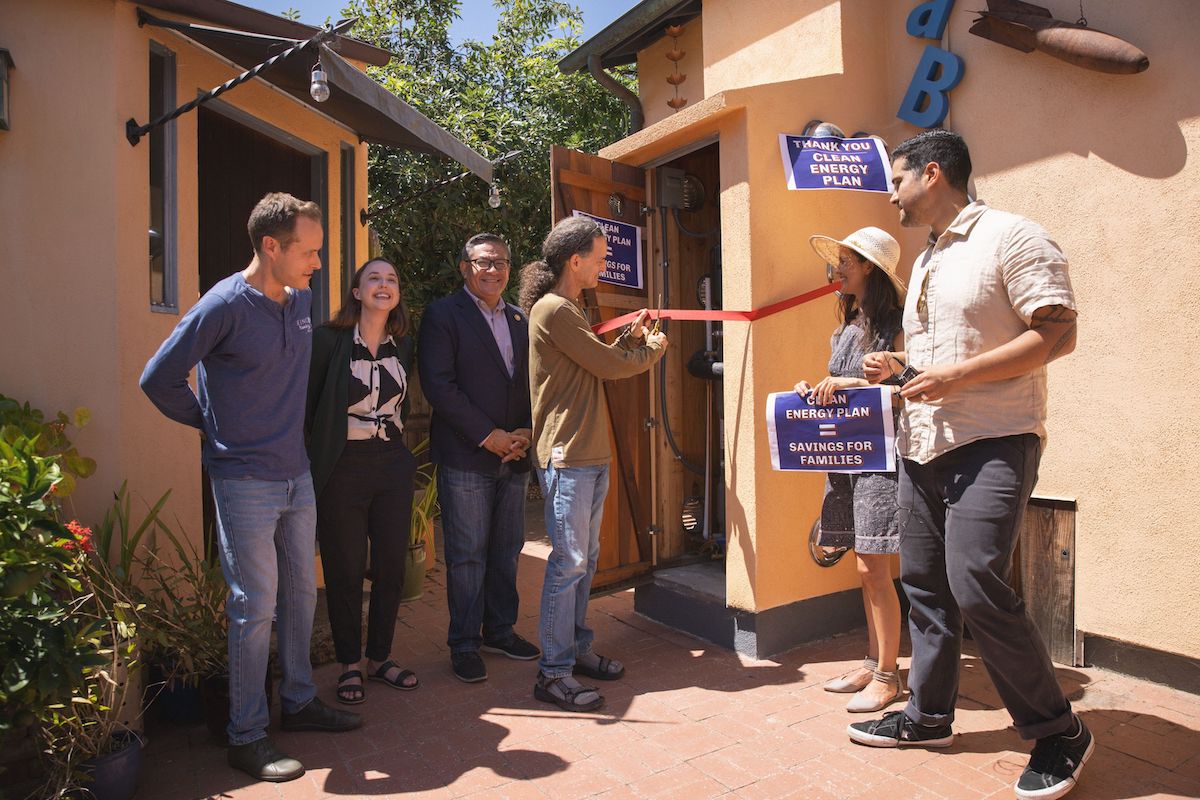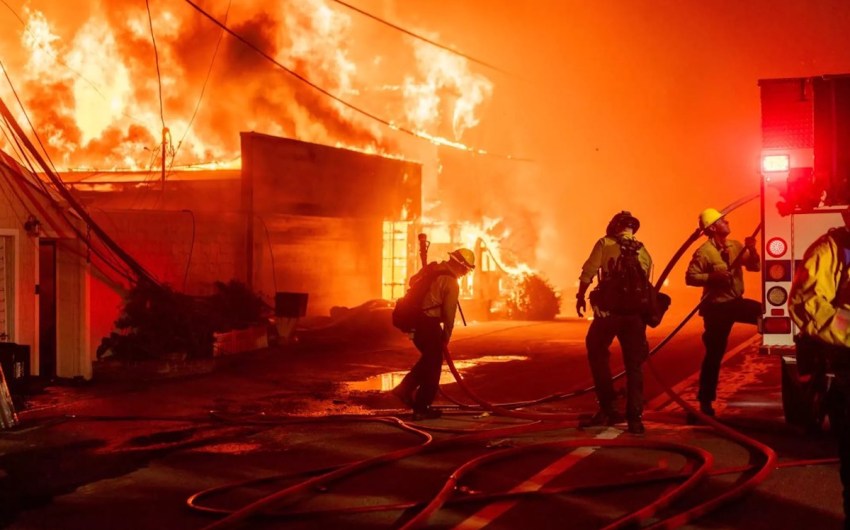Ribbon-Cutting Ceremony Unveils a New Era of Electrification
Inflation Reduction Act Credits Reduce Cost of Adding Home Appliances

A small crowd braved the blistering sun on an August afternoon to witness a historic, albeit rather simple, ribbon-cutting ceremony at the home of Santa Barbara residents Lisa and Tal Avitzur. August 12 was the second anniversary of the Inflation Reduction Act (IRA), which has allowed the Avitzurs to use tax credits to lower their fossil-fuel emissions and the bill for a number of electric appliances.
The landmark legislation introduced a significant uptick in home electrification projects that Congressmember Salud Carbajal was on hand to celebrate. He had voted to pass the IRA back in 2022 and thanked the Avitzurs for opening up their home to display what the Inflation Reduction Act looked like in practice. “The future is electric,” he said, cracking a smile.
The provisions of the IRA, widely lauded as the largest climate action taken in American history to date, invests billions of dollars in clean energy in multifaceted ways. A key feature in the law are financial incentives to make it more affordable for middle-class Americans to replace their natural-gas appliances with electric-powered alternatives.
Tal Avitzur explained how they were able to install a heat pump HVAC system, a heat pump water heater, and an induction stove. With these new appliances, Tal and Lisa are eliminating the carbon footprint of natural gas appliances and, as an added bonus, saving money on utilities each month. Without incentives offered by the IRA, Tal noted, this project would have cost him upward of $23,000. Thanks to the IRA, though, the amount totaled about $9,000.
As the effects of global warming have become increasingly apparent along the Central Coast, the relevance of these sorts of electrification projects cannot be overstated. Carbajal said, “The realities of climate change are no longer hypothetical. What used to be horrific, once-in-a-generation natural disasters are plastered on the front page seemingly every other week.”
He went on to observe that Santa Barbara is facing unprecedented challenges on all levels. “Climate change is affecting the region in more subtle ways. In 1970, or even 2005, you probably didn’t need air-conditioning in our area. But, today, that is changing. Homes that were built in a different climate era, without central air, are presenting a new challenge for our residents.”
Carbajal applauded the IRA for enabling nearly 400,000 Californians to electrify their homes.
“This is a win-win,” Carbajal stated, “We tackle the climate crisis, and we do it while cutting the financial burden of climate change for our middle class.”
The ribbon-cutting ceremony also served as an information session. The programs’ success hinges on households using the incentives to replace appliances with greener alternatives, but confusing acronyms, complicated stipulations, and daunting bureaucracy make using them a muddle. The IRA remains poorly understood — only about 27 percent of Americans are familiar with its provisions, a 2023 poll by Washington Post–University of Maryland found.
To bridge this information gap, speakers gave links to resources that the public can use to navigate the convoluted world of tax credits and incentive programs. Two of them were the Electrify Your Life service and Rewiring America’s Savings Calculator, provided by Community Environmental Council (CEC).
Juan Lares with the CEC emphasized that many resources are in place to help residents better understand and manage all the available programs: “Wherever you are on that journey, you should definitely know that there are local community-based organizations, such as ours, here to help you navigate that and combine fantastic programs that we have in the region, such as 3C-REN (Tri-County Regional Energy Network), all the way up to the IRA,” Lares said.
Also on hand was eternal optimist and longtime environmental advocate Leah Stokes, a UCSB professor and also a senior counsel for the nonprofit Rewiring America. She called the Inflation Reduction Act a turning point to reduce emissions and lower utility bills. The day’s event “is a testament to what’s possible when we combine bold legislation with local action. Together, we’re building a sustainable future, one home at a time,” Stokes said.








